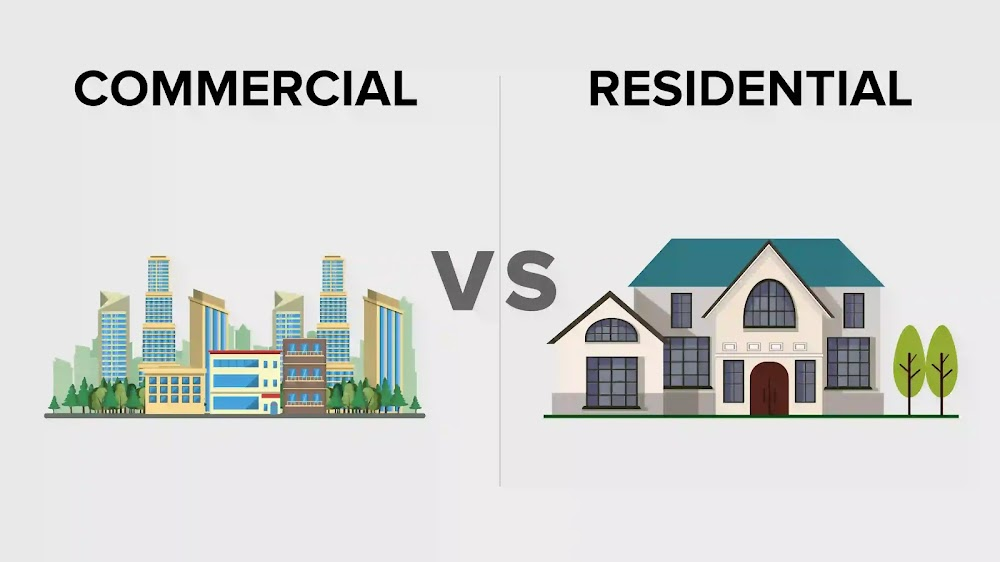
The real estate sector has recovered from the lull caused by the pandemic because of lower home interest rates, discounts and appealing deals offered by builders and developers, pent-up demand, the continued relevance of the remote work paradigm, subsidies under PMAY schemes, and so on. Real estate investment in India is thriving.
With the vaccination drive, office floor plan absorption is expected to drive commercial space rental demand to pre-pandemic levels during the fiscal year. Rental demand in the residential segment is expected to rise in tandem with this trend. Given these developments, the prospects for both short- and long-term benefits from investing in rental real estate are favorable.
Which Rental Income Is More Attractive In India?
Against this backdrop, here are the top factors that prospective investors should consider before deciding whether to invest in the residential or commercial sectors for better returns.
Returns
Rental yield from commercial properties is typically around 7-8%, whereas rental yield from residential properties is around 2-4%. Furthermore, by driving efficient asset management to drive the property’s value and, thus, the returns, investors can boost rental growth. Commercial properties, as opposed to residential ones, are typically leased for extended periods. Commercial leases also include provisions for financial compensation if the tenant vacates the property before the expiration date.
Given these circumstances for a higher return, it makes more sense to invest in commercial properties.
While rental income from residential property is consistent, property owners must always look for vacancies as soon as they appear.
Compared to residential property, the investment in commercial property is relatively high. However, the amount of investment is a critical differentiating factor. The earning process is not as simple as that of residential property. The following section goes into greater detail about this.
Barriers to Entry
The risks associated with commercial property investing are higher in terms of interest, covenants, and market fundamentals. Before making the giant leap, investors should consider factors such as seismic strength, potential operational efficiency, multiple tenants, outstanding warranties, etc. Because these properties are purely functional, longevity is an important consideration.
Once these obstacles are overcome, the practice of ownership may present its challenges, the most significant of which is dealing with multiple tenants. This may result in many operational bottlenecks, necessitating the assistance of experienced property managers to collect rents, perform property repairs, and keep vacancies to a minimum to maximize the value of the assets.
These difficulties are mitigated in the case of residential property because owners typically deal with a single tenant or family. The introduction of digital real estate platforms has streamlined the tenant screening and onboarding process and enabled property owners to deliver a hassle-free customer experience.
To invest in commercial property the traditional way, one must have higher risk tolerance. However, with the introduction of REITs, investing in commercial properties has become much more manageable. Let’s see how it goes.
Arrival of REITs
REITs, or Real Estate Investment Trusts, are corporations that own, manage, and operate income-generating real estate assets that are typically leased to large corporations. Dividends are paid to shareholders from the income generated. Commercial real estate investing is capital-intensive, limiting the number of investors to HNIs and groups. The introduction of REITs in 2017 simplified commercial real estate investing for Indian investors while broadening who could invest in this segment.
REITs allow investors or stockholders to profit from their real estate investments without having to buy, manage, or finance the property themselves. REITs operate similarly to mutual funds in that REIT stockholders can buy and sell units during public trading sessions to earn dividends.
There are numerous advantages to commercial investing through REITs. Aside from streamlining the investment process, REITs provide consistent and substantial dividend income and long-term appreciation. REITs are audited regularly because SEBI regulates them. As a result, information on elements such as tax brackets, ownership, and so on is readily available to the investor.
Post-Pandemic State of Affairs
However, following the pandemic, the government and banking institutions significantly boosted the residential sector, and commercial spaces saw high vacancy levels. However, with more Indians being vaccinated and many offices already open with partial or complete capacity, it is safe and prudent to invest in the commercial segment through traditional methods or REITs if one’s investment buffer allows.
Questions and Answers (FAQs)
1. What Exactly is a Residential Property?
Residential property includes any property purchased to reside.
To know about How to invest in the Best Residential Properties Click here.
2. What Exactly is Commercial Property?
Any property purchased and used for business or commercial purposes is considered commercial property.
Want to know about How to invest in Best Commercial Properties Click here.
3. Which is the Most Careful Investment?
Residential property is a better investment if the investment is small and you lack experience.
4. Is Commercial Property More Expensive Than Residential Property?
Yes, commercial property is more expensive than residential property because businesses are typically located in prime locations.
5. What is the Best Type of Property in Terms of Return on Investment?
The ROI for residential property is approximately 4-10%, while the ROI for commercial property is approximately 6-12%.
Conclusion
To summarize, both commercial and residential property rentals have advantages and disadvantages. Whereas commercial property has higher rental income, longer leases, and more stability, residential property has lower entry barriers and easier access to loans.
Investors can choose based on their risk tolerance and expected gains. Ultimately, it all comes down to the investor’s needs, preferences, assets, risk tolerance, and financial goals. Indians have always felt more secure investing in a physical asset, whether commercial or residential and investment in other sectors will eventually pay off.

